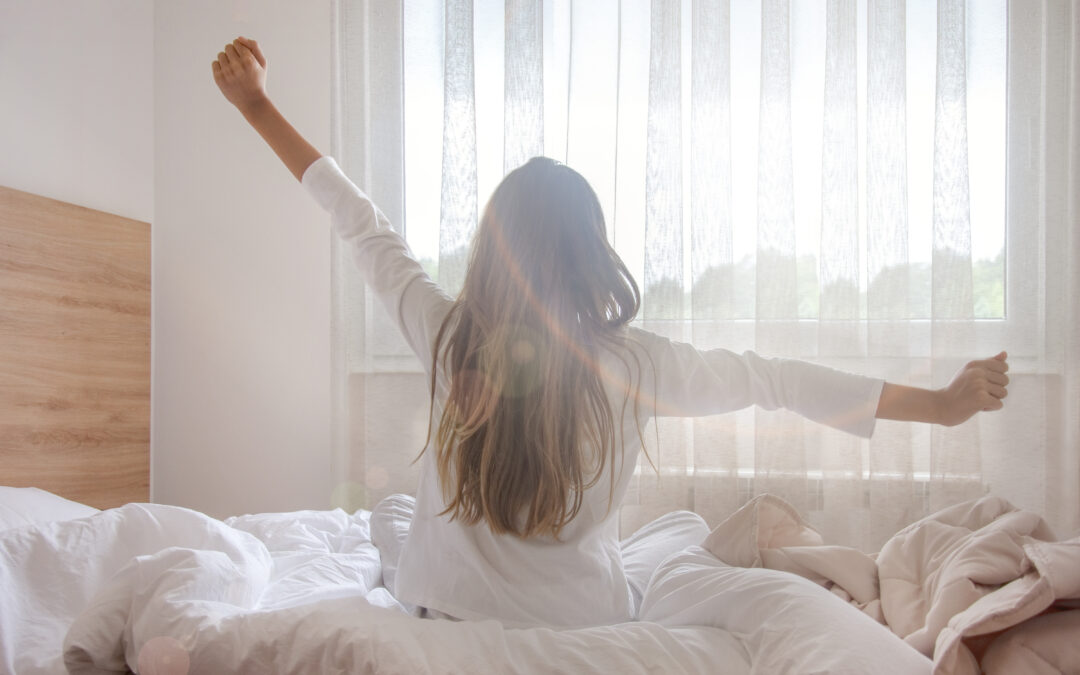What Is the Circadian Rhythm?
Sunrise, sunset. We’re naturally hard-wired to respond to the rising and setting of the sun—it’s how we evolved. The circadian rhythm is the 24-hour internal clock that’s always running in the background, responding to the natural changes in light in our environment. The body’s biological clock helps regulate important bodily functions that include:
- sleep schedule
- alertness
- appetite
- body temperature
- blood pressure
- daily performance
- hormone levels
- reaction times
What Happens When the Circadian Rhythm Is Disrupted?
All sorts of outside factors can throw your body’s biological clock off schedule. Exposure to sunlight, certain drugs, and too much caffeine can all disrupt the sleep schedule. So can staying up too late. But over time, our 24/7 information cycle and media connectivity culture has completely overtaken what was once traditional ‘daytime’ business hours. Unsurprisingly, the people hit hardest by sleep loss are those who usually work extended or irregular hours (more than 50 hours per week), shift workers, or have multiple jobs.
As if it weren’t already challenging enough to maintain a regular sleep schedule and good work/life balance, the artificial blue light from our phone, TV, and computer screens also cause hormonal disruptions that affect sleep and wreak havoc on our circadian rhythm. Even losing a few hours each week will stack up over time, and eventually, it’s going to negatively impact our daily functioning, work productivity, and overall health.
5 Tips to Get Your Circadian Drive Back in the Groove
- Maintain a bedtime routine. Go to bed at the same time every night, even on the weekends. Reset your body’s biological clock by getting into a nightly wind-down routine before getting into bed. At least an hour before going to bed, savor some herbal tea with a book, take a warm bath or listen to calming music or meditate. Once you get into the habit, your brain and body will respond to the environmental cues that it’s time to sleep.
- Keep nights dark. At least an hour or two before bed, shut down the electronic devices. The blue light from TV, computer, and cell phone screens upset the circadian rhythm that triggers sleep, waking, and other biological functions. Black out drapes can help, too.
- Make mornings bright! Our body’s biological clock responds to light (or lack of it). In the morning, open the shades, get outside to sit and have your coffee, or take a walk in the sunshine. If you’re indoors, turn on bright lights.
- If you have to, use a sleep aid. Once in a while, using a sleep aid is OK. You just don’t want to rely on them for long-term use. WebMD says that for some sleep problems, like jet lag or shift work, melatonin may help you get back on track. Melatonin is a hormone that your body naturally produces. Taking melatonin supplements may help override the body’s biological clock if it’s out of rhythm.
- Minimize the effects of jet lag. If you can, try and switch to your destination’s schedule in advance to minimize jet lag. Within a few days of your trip, start to move your bedtime closer to when you go to bed there. If it is six hours later, go to bed an hour or two later each night and get up an hour or two earlier in the morning. Do the same before you return home.
Still having difficulty falling asleep or staying asleep over a prolonged period of time? You may be experiencing symptoms of a sleep disorder stemming from disruption to the circadian rhythm. Make an appointment with a sleep specialist to get to the root cause of what is causing your sleep issues.


